The War against al-Qaeda
The War against al-Qaeda
Religion, Policy, and Counter-narratives
Nahed Artoul Zehr
2017 Georgetown University Press. All rights reserved. No part of this book may be reproduced or utilized in any form or by any means, electronic or mechanical, including photocopying and recording, or by any information storage and retrieval system, without permission in writing from the publisher.
The publisher is not responsible for third-party websites or their content. URL links were active at time of publication.
Library of Congress Cataloging-in-Publication Data
Names: Zehr, Nahed Artoul, author.
Title: The War against al-Qaeda : Religion, Policy, and Counter-narratives / Nahed Artoul Zehr.
Description: Washington, DC : Georgetown University Press, 2017 | Includes bibliographical references and index.
Identifiers: LCCN 2016031233 (print) | LCCN 2016040145 (ebook) | ISBN 9781626164277 (hc. : alk. paper) | ISBN 9781626164284 (pb. : alk. paper) | ISBN 9781626164291 (eb)
Subjects: LCSH: Qaida (Organization) | TerrorismReligious aspectsIslam. | Islamic fundamentalism. | Afghan War, 2001
Classification: LCC HV6432.5.Q2 Z44 2017 (print) | LCC HV6432.5.Q2 (ebook) | DDC 363.325dc23
LC record available at https://lccn.loc.gov/2016031233

This book is printed on acid-free paper meeting the requirements of the American National Standard for Permanence in Paper for Printed Library Materials.
18 17 9 8 7 6 5 4 3 2 First printing
Printed in the United States of America
Cover design by James Keller.
For my parents, Samir and Afifa Artoul
Contents
Acknowledgments
In the late fall of 2011, I sat in on a seminar in the Joint Military Operations (JMO) Department at the US Naval War College. I was a freshly minted PhD who had landed her dream fellowship to spend an entire year at a graduate training school for military officers, where I learned about war and the military in ways that are unavailable to most academics. I had been invited to attend this particular seminar because of the topic, Is al-Qaeda a global insurgency?
About thirty minutes into the discussion, one of the students, a navy captain, asked me to reply to the prompt. I responded, and as the conversation continued, I realized the import of what the officer had asked of me. For this officer, the way this group was conceptualized had a direct impact on how the US military would respond to the threat. At the time, major decision makers had deemed al-Qaeda a global insurgency, and the military was engaged in the task of learning how to fight counterinsurgency war (discussed in more detail in ). This was a significant shift from the conventional state-on-state conflicts that the US military was used to fighting and, moreover, a shift from the type of war that it was very good at winning. I understood very clearly, then, that the way in which we conceptualize any group or threat has consequencesor, to put it more plainly, that different ways of thinking about the nature of a phenomenon will generate different types of responses. For these reasons, I decided to focus my research more specifically toward understanding the practicalconsequences of conceptualizing al-Qaedaa term that, by the time I was sitting in this seminar, had become ubiquitous in any conversation on war, national security, or international politics.
For this I wish to thank the Department of Defenses Minerva Initiative, which funded my position as Minerva Research Chair at the war college from the fall of 2011 to the summer of 2012. Moreover, my time there would not have been so pleasant without the friendship and guidance of Dr. Martin Cook, who was the Adm. James B. Stockdale Professor of Professional Military Ethics at the time. Thank you also to my office mates, Kevin Brew and Sarah Sewall, who provided a warm, welcoming, and stimulating environment and engaging conversation (among other things!). A sincere thank you also goes to the folks on the fourth deck in JMO who, despite my being a stranger among them, were welcoming and engaging hosts, were generous with their time and energy, and were always willing to answer my questions.
Of course, the research on this book began well before my fellowship and was possible only because of the work and support of my intellectual community. I had the good fortune of working with Howard Rhodes while we were both at the University of Iowa. He became an adviser, a mentor, and a true-blue friend. He introduced me to the field of just war and provided invaluable feedback on my writing. His counsel and friendship continue to serve as guiding marks for my professional life. I wish to express gratitude to those who read the work in its early form. Feedback from Aline Kalbian, Sumner B. Twiss, and Adam Gaiser steered the work in directions that were much more fruitful than those I had originally intended. Aline Kalbians and Sumner Twisss comments helped me better understand how to use the tools of my subfield to highlight the contribution of this work, and Adam Gaisers probing questions on US foreign policy and counter-narratives pushed me to do more research in this direction. Their comments helped me to shape this project into its current form.
A special thank you is owed to my intellectual forebearers in the just war community. I wish to thank James Turner Johnson, whose foundational work on the just war tradition has formed my understanding of the field and its importance. His intellectual influence permeates this books pages. All students of just war owe him a great debt. Thank you to G. Scott Davis for his support and for taking my work seriously. Although I never had the good fortune of being his student (at least not directly), his work has been critical to the way I understand the just war tradition. Moreover, his comments on my scholarship have always demonstrated a keen ability to understand both its strengths and its shortcomings, and to do so in ways in which I could understand how to capitalize on the former and (try to) fix the latter. To John Kelsay, I wish to express my very deepest gratitude. My own work would not have been possible without his groundbreaking books on comparative ethics, the just war tradition, and Islam. Through our conversations on the field of comparative religious ethics, I was able to imagine the framework for my own projects and to garner an understanding of myself as a scholar. More so than this, though, his support of me and my work has been the force moving me forward when the moments of self-doubt impeded my way. Having him as an adviser and mentor has been my very sincere honor and privilege.
I wish to express my gratitude to Western Kentucky University and the Society for Values in Higher Education for funding the Symposium on Peace, Islam, and Counter-narratives that I organized in the fall of 2014. This symposium allowed me to pursue a number of questions that had emerged from my work on the manuscript and to invite a community of scholars and practitioners who were interested in the same issues. Thank you to all the participants for their diligence and enthusiasm for the project and for the important work that they have done and continue to do. I would also like to thank my colleagues (at Western Kentucky and elsewhere) and my students, all of whom have provided a pleasant and stimulating environment as I pursue the questions that I take up in this book. Thanks in particular to my graduate students, whose thought-provoking comments in seminars helped me clarify my thinking and whose sense of humor always gave me perspective.

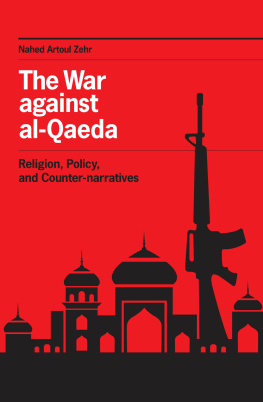
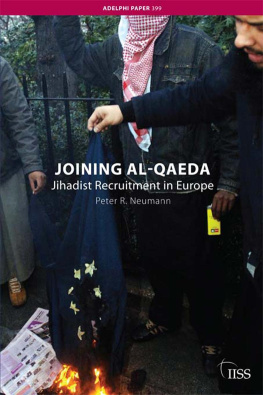

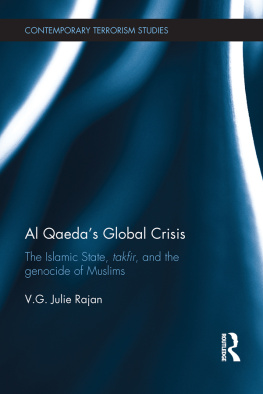
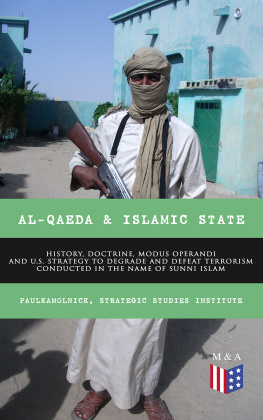

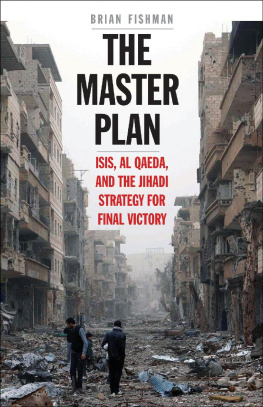
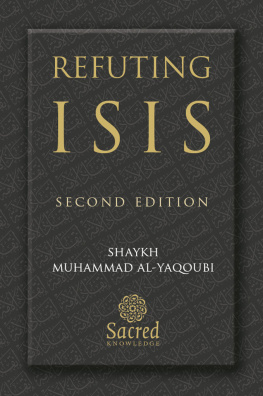
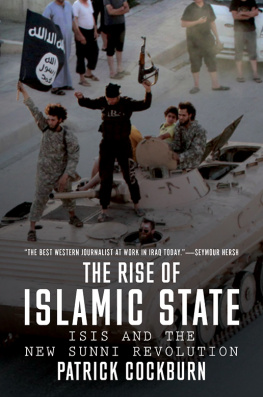
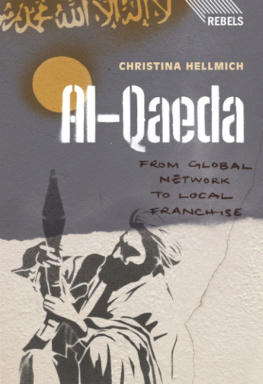

 This book is printed on acid-free paper meeting the requirements of the American National Standard for Permanence in Paper for Printed Library Materials.
This book is printed on acid-free paper meeting the requirements of the American National Standard for Permanence in Paper for Printed Library Materials.